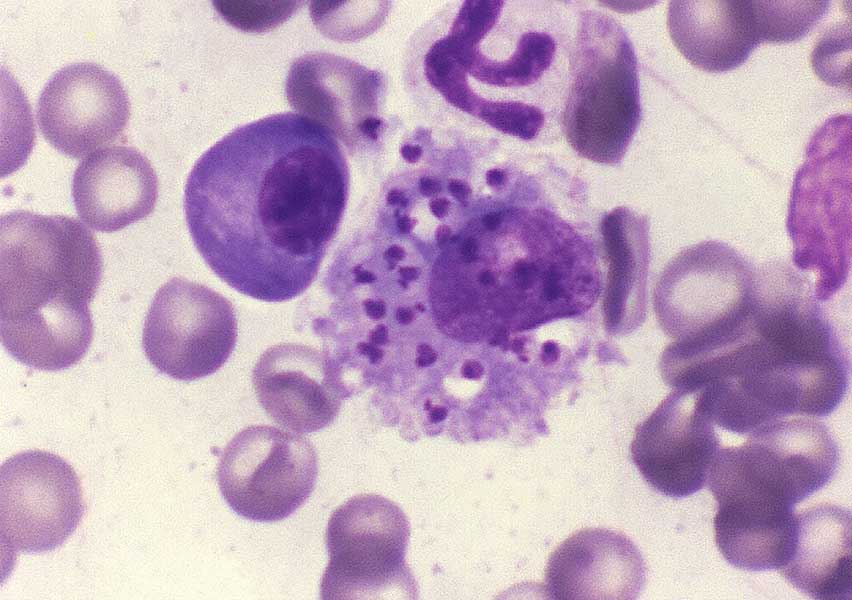Leishmania
Leishmania infantum is an intracellular protozoan parasite of the Donovani complex, responsible for visceral leishmaniasis in humans and canine leishmaniosis. It is the only species causing the disease in Spain. While infection is common in dogs, human cases are rare and mostly occur in immunocompromised individuals, especially those with HIV/AIDS.
Clinical Features:
Visceral leishmaniasis is a severe systemic disease affecting organs such as the spleen, liver, and bone marrow. Historically, it primarily affected young children, but its incidence has increased among immunocompromised patients, where latent infections may reactivate.
Common symptoms include:
- Prolonged fever
- Weight loss
- Hepatosplenomegaly (enlargement of liver and spleen)
- Anemia, leukopenia, and thrombocytopenia
- Asthenia and generalized weakness
In immunocompromised individuals, the disease may be more aggressive and difficult to control.
Diagnosis:
Diagnosis involves:
- Direct examination of the parasite in bone marrow or lymph node aspirates
- Parasite culture
- PCR for molecular detection
- Serology (specific antibodies)
PCR is especially useful in immunocompromised patients due to its higher sensitivity.
Treatment:
First-line treatment includes:
- Pentavalent antimonials
- Liposomal amphotericin B (particularly in severe cases or immunocompromised patients)
- Miltefosine (oral administration)
Clinical follow-up and immunological monitoring are recommended because treatment can be prolonged and relapses may occur, especially in HIV-positive individuals.

